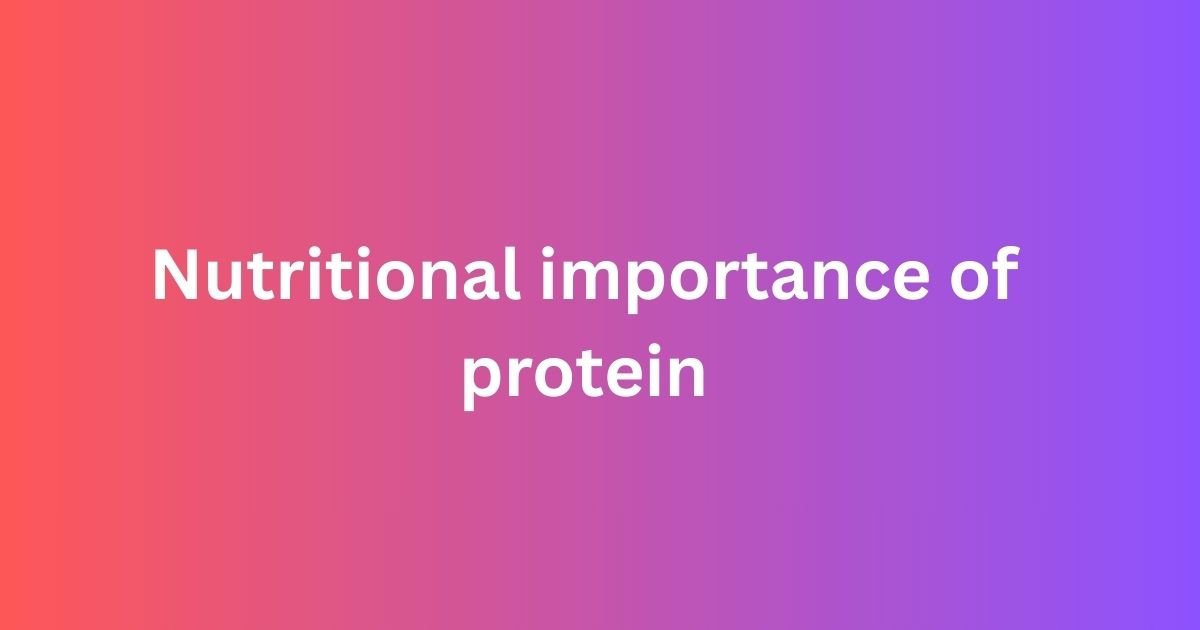Nutritional importance of protein:
i. Body structure: Protein is essential for the formation of the body. Life cannot be imagined without protein. Most of the structural elements of the cell are made of protein. The bones, cartilage, tendons, ligaments, muscles, cuticles of the body; feathers, hair, nails, hooves, horns, etc. of animals and birds are made of protein.
ii. Repair and growth of the body: Protein is essential for the repair and growth of the body. Protein is needed to repair the damage caused by the body to complete various biological functions, such as movement, respiration, excretion, reproduction, etc. Apart from that, the growth of animals lasts for a certain period. If there is a lack of protein-like food during this growth phase, growth is hampered.
iii. Enzyme synthesis: Enzymes act as organic catalysts in the body. These enzymes are made of protein. Enzymes or enzymes are necessary for various chemical reactions in the body, i.e. the synthesis of various complex compounds or the breakdown of complex compounds. That is, proteins indirectly control various metabolic functions of the body.
iv. Hormone synthesis: Hormones act as chemical messengers in the body. Hormones play a significant role in keeping the body healthy and normal. Some special hormones, such as insulin, somatotrophic hormone, luteotrophic hormone, etc. are mainly made of protein.
v. Antibody production: Protein is required for the synthesis of ‘antibodies’ necessary for building immunity in the body.
vi. Hemoglobin synthesis: Hemoglobin in the blood is a type of conjugated protein. It is made up of a protein called globin and a pigment called heme. Hemoglobin plays a major role in the transport of oxygen, i.e. O2 and CO2, in the body.
vii. Energy source: Protein acts as a source of energy in the body when needed. 4.1 kilocalories of energy are produced by the oxidation of 1 gram of protein. When there is a lack of sugar in the body, energy is produced by protein oxidation.
The energy value of one gram of protein is 5.0-5.5 kilocalories. But the physiological energy value of one gram of protein is 4.1-4.2 kilocalories. Because during the metabolism of amino acids in living cells, some non-protein nitrogen is released which does not produce energy. Therefore, the physiological energy value is low.
viii. Fulfillment of the need for essential amino acids: Ten amino acids (leucine, isoleucine, lysine, methionine, histidine, phenylalanine, tryptophan, threonine, valine and arginine) cannot be produced by the body, they are called essential amino acids. These essential amino acids are supplied to the body through various protein foods.
ix. Protoplasm synthesis: The protoplasm of every living cell is synthesized from amino acids.
x. Plasma protein synthesis: Plasma proteins (albumin, globulin, prothrombin, fibrinogen) are synthesized from amino acids in the liver.
